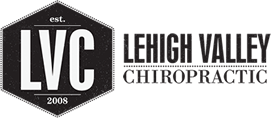Lumbar Disc Herniation
What is Disc Herniation ?
The intervertebral disc is the connective tissue between the vertebrae (bones of the spinal column). The disc is composed of a nucleus pulposus which is surrounded by annular fibers. When the nuclear material breaks though the annulus, it is considered a bulge, protrusion, herniation or sequestration. A herniation can occur anywhere in the spine but they are most common in the lumbar region (low back). Many asymptomatic individuals have disc herniations that are evident on MRI; it is important to understand that pain generation is not necessarily from the disc herniation itself. Symptoms arise when the surrounding tissues (such as nerves and the spinal cord) are affected. Radiculopathy (commonly called sciatica when in the lumbar spine) is a diseased condition of the nerve root; a common cause of radiculopathy is disc herniation.
How is Disc Herniation Diagnosed?
The gold standard for diagnosing disc herniation is MRI. However, it is important to note that the MRI should correlate with the findings present during a clinical examination. Doctors of chiropractic are trained to recognize the signs and symptoms of disc herniation. Be sure to share any symptoms that are experiencing with your health care provider. Please be aware that certain symptoms associated with back pain are an indication of a more serious condition. If you notice changes in bowel, bladder or sexual dysfunction contact your nearest emergency health care provider.
What Are the Options for Treating Disc Herniation?
Effectively treating disc herniation requires a multimodal approach. When at all possible, find a treatment plan that is minimally invasive without drugs or surgery. More invasive options should be entertained after the conservative methods fail to produce the desired result. Our clinic offers an evidence based treatment plan that consists of distractive manipulation (flexion distraction), exercise, electrical nerve stimulation and pain management strategies. On the more invasive end of the spectrum are pharmacotherapeutic options such as nonsteroidal anti-inflammatory drugs, acetaminophen, muscle relaxants, corticosteroids, and opiods. Certain pain management specialists perform epidural steroid injections. The most invasive last resort for pain resulting from disc herniation is surgery (discectomy, laminectomy, or spinal fusion). There are many risks associated with this method of treatments and a high percent of patients who undergo surgery are susceptible to failed back syndrome. Research your options carefully and discuss them with your health care provider before making your decision.
- Boos N, Rieder R, Schade V, Spratt KF, Semmer N, Aerbi M. 1995 Volvo Award in clinical sciences of magnetic resonance imaging, work perception and psychosocial factors in identifying symptomatic disc herniations. Spine. 1995 Dec 15;20 (24): 2613-25.
- Mangialardi R, Mastorillo G, Minoia L, Garofalo R, et al. Lumbar disc hernation and cauda equina syndrome. Considerations on a pathology with different clinical manifestation. Chir Organi Mov. 2002 Jan-Mar; 87 (1):35-42.
- Cambron JA, Gudavalli MR, Hedeker D, McGregor M, et al. One-year follow-up of a randomized clnical trial comparing flexion distraction with an exercise program for chronic low back pain. J Altern Complement Med. 2006 Sep; 12(7): 659-68.
- Zambito A, Bianchini D, Gatti D, Viapiana O, et al. Interferential and horizontal therapies in chronic low back pain: a randomized, double blind, clinical study. Clin Exp Rheumatol. 2006 Sep-Oct; 24(5):534-9.
Tags: back pain bethlehem

 610-868-6800
610-868-6800